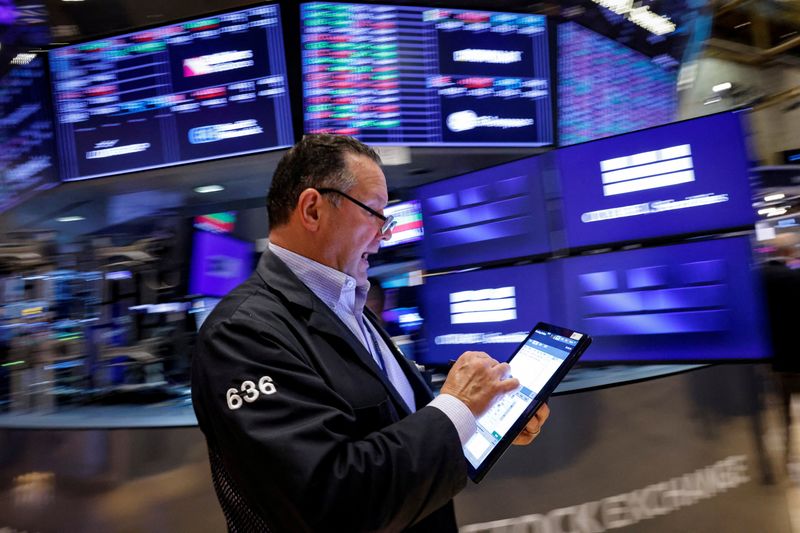By Naomi Rovnick
LONDON (Reuters) - Mounting unease over the U.S. economic outlook and a seasonally weak month for stocks have created another perfect storm of global market volatility, leaving investors scrambling for protection and fearing another round of currency chaos.
Following a rapid recovery for risky assets such as stocks and high yield bonds from a chaotic early August selloff, traders have lost their short-lived optimism that U.S. interest rate cuts would support growth.
Instead, they appear to be already getting ahead of U.S. jobs data on Friday that may repeat last month's weak report, with Tuesday's weak U.S. manufacturing data triggering fresh selling.
Wall Street's S&P 500 share index fell over 2% on Tuesday, while Japan's broad Topix share gauge plunged 3.7% on Wednesday in its biggest daily drop since the Aug. 5 market rout and European stocks tumbled.
Meanwhile, the VIX index of expected U.S. equity volatility has hit a one-month high, as choppy currency trading threatened the dollar and other haven currencies.
"Markets were dealing with uncertain inflation but growth was resilient," said Florian Ielpo, head of macro at Lombard Odier. "That situation seems to be changing, the new uncertainty is how deep will the slowdown be."
SHAKEOUT
The shaky start to September follows an early August global rout as a Japanese rate increase and the U.S. jobs data wrecked popular carry trades betting against the yen.
Echoing August's pain, highly valued tech stocks that investors have crowded into are taking a beating. AI heavyweight Nvidia slid 9.5% on Tuesday, the deepest ever single-day market value decline for a U.S. company. Dutch semiconductor equipment supplier group ASML (AS:ASML) Holdings slumped around 5% on Wednesday.
"One of the big risks is that you have this market concentration, and all it takes is one of those (big tech) names to be volatile, for it to feed through to the entire market," said Justin Onuekwusi, CIO at investment firm St. James' Place.
The shakeout followed investor unease that stocks and bonds had started September with different stories - equity markets had priced robust company earnings while government debt rallied in anticipation of deep U.S. rate cuts and recession risk.
"You need to decide now whether you like credit and bonds or equities," said Lombard Odier's Ielpo, who added he had bought government bonds over the last four weeks.
U.S. 10-year bond yields, at around 3.8%, have fallen for the past four months. German Bund yields pulled further away on Wednesday from one-month peaks touched on Monday.
BCA Research recommended selling equities and buying bonds.
"We assign high odds to a recession tipping point," it said in a client note.
The Federal Reserve is expected to cut rates for the first time since 2020 on Sept. 18, with money markets now pricing a 43% probability of a 50-basis-point reduction in its funds rate to 4.5%-4.75%.
A broad index of high-yield corporate bond performance has also risen 2.5% since dropping briefly in early August.
Ninety One credit fund manager Darpan Haran said he was cautious about U.S. high yield bonds, sold by borrowers whose weaker financial profiles make them sensitive to economic shocks.
"U.S. high yield is more prone to a repricing because of valuations and U.S. recession fears," he said.
DOLLAR JITTERS
Traditional currency havens might not shine in this global selloff, analysts said, because of uncertainty about whether the dollar would retain its usual appeal when risky assets fall or suffer instead because traders believe a U.S. recession is on the horizon.
Short-term speculators have a roughly $9 billion bet on the dollar falling against other major currencies, a position that could spark more foreign exchange swings if proven wrong, or further weaken U.S. stocks if it is accurate.
Trend following CTA funds, key players in August's market selloff, have built large bets the dollar will weaken, BNP Paribas (EPA:BNPP) head of G10 FX Strategy Alex Jekov said.
If U.S. jobs data this week come out strong, the dollar may strengthen, causing brisk exits from those short positions and hitting currencies speculators currently prefer, like the British pound.
An index of foreign exchange volatility is heading back towards peaks hit in early August.

Societe Generale (EPA:SOGN) chief FX strategist Kit Juckes said over the longer term, the dollar and U.S. stocks could drag each other lower because of the vast magnitude of funds that had now flowed into Wall Street stocks from overseas, without currency hedging.
"The risk for the dollar is that people actually don't just go off the dollar, but they also come out of U.S. stocks as well," he said.